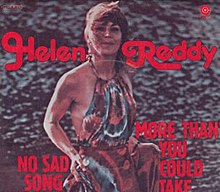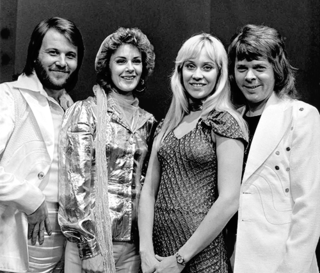
ABBA were a Swedish pop group formed in Stockholm in 1972 by Agnetha Fältskog, Björn Ulvaeus, Benny Andersson, Anni-Frid Lyngstad. They are one of the most popular and successful musical groups of all time, and are one of the best-selling music acts in the history of popular music.

Anni-Frid Synni Lyngstad, also known simply as Frida, is a Swedish singer who is best known as one of the founding members and lead singers of the pop band ABBA. Courtesy titles Princess Reuss and Countess of Plauen are also in use because of her third marriage. Born in Bjørkåsen, Norway, to a Norwegian mother and a German father, she grew up in Torshälla, Sweden, and started her first solo career there, as a jazz singer in 1967, through a talent competition called New Faces.
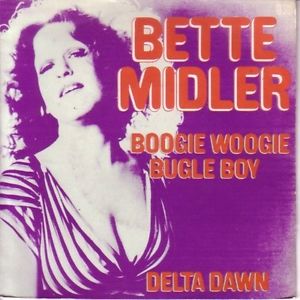
"Delta Dawn" is a song written by musician Larry Collins and country songwriter Alex Harvey. The first notable recording of the song was in 1971 by American singer and actress Bette Midler for her debut album The Divine Miss M. However it is best known as a 1972 top ten country hit for Tanya Tucker and a 1973 US number one hit for Helen Reddy.

The discography of Swedish pop music group ABBA consists of nine studio albums, two live albums, seven compilation albums, four box sets, five video albums, 50 singles, and 43 music videos. To date, ABBA have sold more than 150 million records worldwide becoming one of the best-selling music artists in history. They have scored 9 No. 1 singles and 10 No. 1 albums in the UK, becoming the most successful Swedish act of all time on the Official Charts.
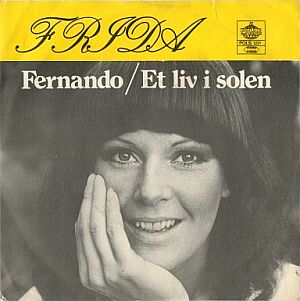
"Fernando" is a song written by Benny Andersson and Björn Ulvaeus, from the Swedish musical group ABBA. The song was written for their fellow group member Anni-Frid Lyngstad and was included on her 1975 album Frida ensam.
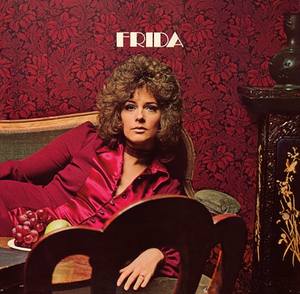
Frida is the debut studio album by Swedish singer Anni-Frid Lyngstad, released in March 1971 by EMI Columbia. Recorded between September 1970 and January 1971, Frida was produced by her then-fiancé, Benny Andersson. Frida was her only album recorded for EMI during her contract, not counting her eponymous compilation album from 1972, before being signed to Polar and forming the pop group ABBA, a year later.

"I Am Woman" is a song written by Australian musicians Helen Reddy and Ray Burton. Performed by Reddy, the first recording of "I Am Woman" appeared on her debut album I Don't Know How to Love Him, released in May 1971, and was heard during the closing credits for the 1972 film Stand Up and Be Counted. A new recording of the song was released as a single in May 1972 and became a number-one hit later that year, eventually selling over one million copies. The song came near the apex of the counterculture era and, by celebrating female empowerment, became an enduring feminist anthem for the women's liberation movement. Following Reddy's death in September 2020, the song peaked at number 2 on the Australian digital sales chart.

"Take a Chance on Me" is a song by Swedish pop group ABBA, released in January 1978 as the second single from their fifth studio album, ABBA: The Album (1977). Agnetha Fältskog and Anni-Frid Lyngstad share the lead vocals on the verses and choruses, with Fältskog singing two bridge sections solo. The song reached the top ten in both the UK and US, and was notably covered by the British band Erasure in 1992.
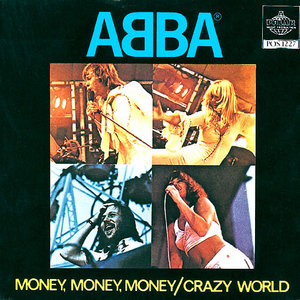
"Money, Money, Money" is a song recorded by Swedish pop group ABBA, written by Benny Andersson and Björn Ulvaeus with Anni-Frid Lyngstad singing lead vocals. It was released on 1 November 1976, as the second single from the group's fourth studio album, Arrival (1976). The B-side, "Crazy World", was recorded in 1976 during the sessions for the ABBA album. The song is sung from the viewpoint of a woman who, despite hard work, can barely keep her finances in surplus, and therefore desires a well-off man.

Shine is the fourth studio album by Swedish singer Anni-Frid Lyngstad, and her second international solo album as Frida. Released in September 1984, it marks her last studio album in the English language to date. Although it was never officially released in the United States, the album was made available in Canada by WEA.

"Can't Shake Loose" is a 1983 song from Agnetha Fältskog's solo album, Wrap Your Arms Around Me. It was the third single release in Europe and the first to be issued in the United States and Canada.
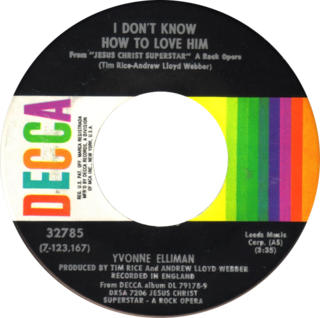
"I Don't Know How to Love Him" is a song from the 1970 album and 1971 rock opera Jesus Christ Superstar written by Andrew Lloyd Webber (music) and Tim Rice (lyrics), a torch ballad sung by the character of Mary Magdalene. In the opera she is presented as bearing an unrequited love for the title character. The song has been much recorded, with "I Don't Know How to Love Him" being one of the rare songs – after the 1950s, when multi-version chartings were common – to have had two concurrent recordings reach the Top 40 of the Billboard Hot 100, specifically those by Helen Reddy and Yvonne Elliman.
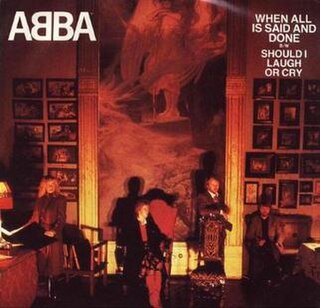
"When All Is Said and Done" is a song recorded in 1981 by Swedish pop group ABBA, and is featured on the group's eighth studio album, The Visitors. The track – with lead vocals by Anni-Frid Lyngstad – was released as a single in the United States on 31 December 1981 on Atlantic 3889, and reached No. 27 on the US Billboard Hot 100 in March 1982.

"The Wall Street Shuffle" is a single by the British pop/rock band 10cc, released in 1974 on the UK Records label, from the band's 1974 album Sheet Music. It was the most successful single to be released from the album, reaching No. 10 on the UK chart.
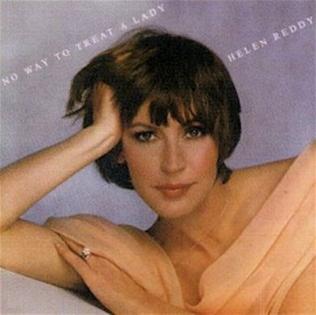
"Ain't No Way to Treat a Lady" is a 1974 written and first recorded by American singer-songwriter Harriet Schock. It was covered by various other artists, and saw its greatest success when it was covered by Helen Reddy, whose 1975 rendition became a top 10 hit.
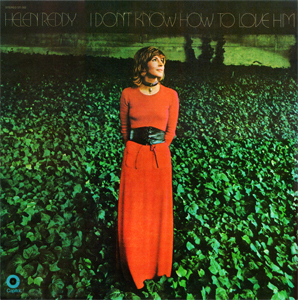
I Don't Know How to Love Him is the debut studio album by Australian-American pop singer Helen Reddy, released on May 10, 1971, by Capitol Records. I Don't Know How to Love Him included her first recording of "I Am Woman". The album made its first appearance on Billboard magazine's Top LP's chart in the issue dated June 5, 1971, and remained there for 37 weeks, peaking at number 100, and got as high as number 40 on the album chart in Canada's RPM magazine. On November 27, 1974, the album received Gold certification from the Recording Industry Association of America, and on March 29, 2005, it was released for the first time on compact disc as one of two albums on one CD, the other album being Reddy's eponymous follow-up that originally came out in the fall of 1971.

Helen Reddy is the second studio album by Australian-American pop singer Helen Reddy, released on November 8, 1971, by Capitol Records. Reddy's selections include tracks by singer-songwriters Carole King, John Lennon, Randy Newman, and Donovan. It debuted on Billboard magazine's Top LP's chart in the issue dated December 4, 1971, and had a seven-week chart run in which it got as high as number 167. On March 29, 2005, the album was released for the first time on compact disc as one of two albums on one CD, the other album being I Don't Know How to Love Him, Reddy's debut LP that originally came out in the spring of 1971.

Rarities from the Capitol Vaults is a compilation album by Australian-American pop singer Helen Reddy that was released in 2009 by EMI Music Special Markets and boasts 10 previously unreleased songs as well as two lesser-known recordings.
"En ledig dag" is a Swedish song with lyrics by Bengt Sten, originally released in 1967 by Swedish singer Östen Warnerbring. The melody is based on the 1964 Italian song "Weekend in Portofino", composed by Bruno De Filippi with lyrics by Matteo Chiosso and recorded by Gian Costello. A cover version was the debut single released by Swedish singer Anni-Frid Lyngstad.
"Änglamark" is a Swedish song composed and written by Evert Taube for the movie The Apple War (Äppelkriget) in 1971. The song is sung in the movie's opening and ending credits by the composer's son, Sven-Bertil Taube. Instrumental variations of the song are used as a leitmotif throughout the movie.
